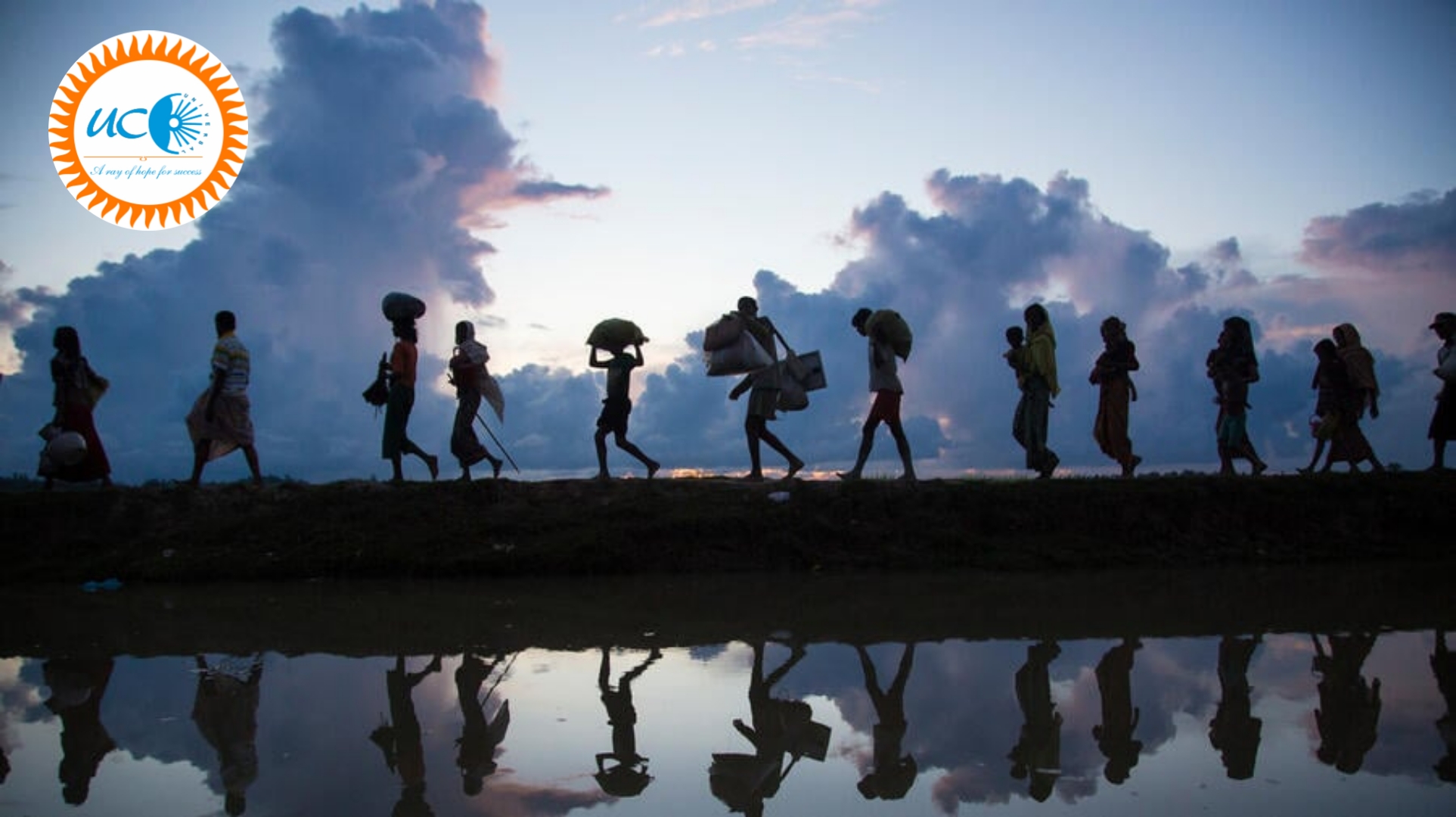Ethical Issues
Q. Discuss the ethical issues involved in the recent refugee crisis and immigration as a global phenomenon from a broad perspective of globalization and rights of citizens and aliens.
The movement of people across borders can be categorized as being legal or illegal and being forced or voluntary. Recently, European countries faced an influx of refugees from war torn Syria and Iraq. Similarly, large numbers of Rohingyas fled Myanmar and are living in refugee camps spread across Bangladesh and India. The responsibilities of the nations vis-a-vis rights of non-citizens has been a matter of debate across the world including India and the ongoing refugee crisis has further intensified the debate.
A modern democratic state is founded on a constitution, Rule of law and recognition of citizenship. Citizenship is an exclusive concept- as in only those who fulfill a defined criterion are recognized and as such, enjoy rights by the virtue of being citizens. Non-citizens, i.e. both immigrants and refugees, do not enjoy many of these rights.
In this context, the ethical issues that arise because of the current refugee crisis and immigration have to be identified keeping in view the UN Declaration of Human Rights. These issues broadly are:
responsibility of the countries, empathy towards the asylum seekers, addressing the concerns of the citizens and recognising principles which can be used to build a framework in which refugees will be provided help.
The issue of immigration often brings xenophobia and arguments such as drain on economic resources, fear of loss of jobs etc. Further, amidst refugee crisis, many European countries, USA and even India have denied entry to refugees on the grounds that it may lead to infiltration of religious extremists in their country. However, this approach raises various ethical issues and questions the fundamental aspects of modern constitution-governed society such as:
- Rights of citizens and aliens: By being a citizen, one is granted rights. However, there are certain basic human rights which must not only be granted but also be guaranteed by all countries. Amongst them, the most basic is the right to life. Humanity must be treated as an end itself. As such, even if all rights enjoyed by citizens cannot be guaranteed to aliens, there is no question of not according them the most basic ones. Amongst them, as can be seen in the globalizing framework, a right to decent work should also be recognized.
- Global citizenship: In an era of interconnected globalized world, it is argued that although a world community and global society does not yet exist, people are already linked to each other across national boundaries. Though, countries help each other in terms of financial resources, there is still a stiff resistance to accept immigrants and refugees even among developed countries.
- Responsibility of countries- Humanitarianism: If no state is willing to accept refugees, they become stateless and may be forced to live in camps, or as illegal migrants. Often, they cannot legally work, or educate their children, Humanitarianism demands that humans accord respectful treatment and meaningful assistance to fellow beings and especially to the vulnerable.
- Framework of help- Sharing responsibilities: The countries must agree to share the resource burden because of refugees equitably. This must recognise aspects such as economic capability, historical as well as contemporary role, geographical proximity and non-refoulment.
Hence, the refugee crisis in various part of the world along with the larger issue of immigration demands liberal interpretation of the meaning and rights of citizenship which should be based on the idea of equality, humanism and fairness. This would entail providing a temporary legal status to refugees along with guaranteeing them basic human rights.






